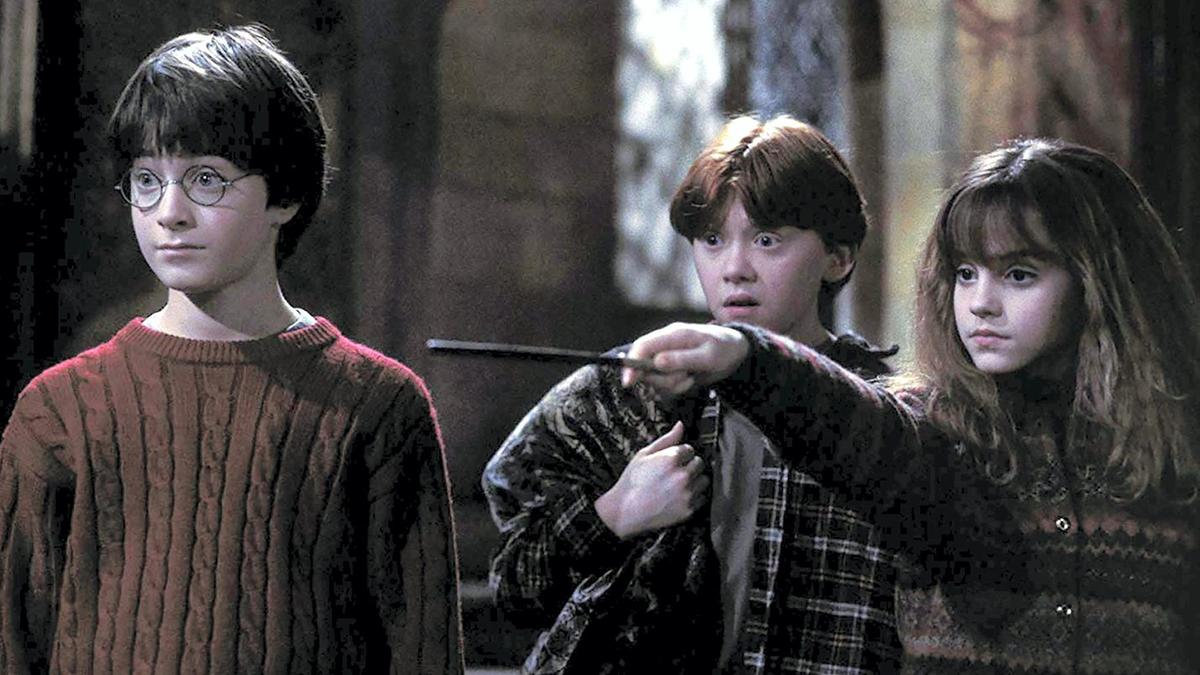School Bans Harry Potter Books Because They Contain “Actual Curses and Spells”
Apparently, it's 1999.


Well, this is new: an American Catholic school has banned J.K. Rowling’s Harry Potter series because you might accidentally conjure “evil spirits” while reading. Expecto idiotum.
This story is receiving a lot of news coverage—some might say an outsize amount of attention, since it’s a single school affected by one man’s opinion. But I think it’s important to call out book banning and censorship in schools, which is always unacceptable, and in the case of St. Edward Catholic School in Nashville, TN, just plain bonkers.
As Geek.com neatly summarizes, the school’s pastor had a reason for banning Harry Potter that I haven’t encountered before:
“These books present magic as both good and evil, which is not true, but in fact a clever deception,” the Rev. Dan Reehil, a pastor at the Roman Catholic parish school, wrote in an email obtained by the Nashville Tennessean.
“The curses and spells used in the books are actual curses and spells,” he continued. “Which, when read by a human being, risk conjuring evil spirits into the presence of the person reading the text.”
The Geek.com story also says that Reehil claimed he “consulted with several exorcists” in the US and Rome, who recommended the ban. I find it ironic that people who identify as exorcists of demons are behind this complete and utter bunk regarding fantasy novels. But let me stop cry-laughing here and let’s break this down:
Harry Potter does not contain “actual curses and spells.” It contains a made-up system of magic in a world created by J.K. Rowling and borrowing liberally from everything from Lord of the Rings to Greek mythology to Tom Brown’s Schooldays. While Rowling sometimes sketches established traditions, history, and folklore into her world, this is a land of flying cars, mermaids under the school lake, centaurs and giant spiders in the forest, and incantations comprised of a kind of derivative Latin mishmash like Expelliarmus, Finite Incantatum, Lumos, and Petrificus Totalus. In short, the “spells” here are total nonsense, even if one believes in magic in our world. Rowling made them up.
Harry Potter‘s “curses” are much the same. There are three Unforgivable Curses—Avada Kedavra (the killing curse), Imperius (forcibly controlling another), and Cruciatus (torture). It’s a highly moral lesson that’s driven home throughout the books that using these curses is so terrible they’re called Unforgiveable. That’s a great thing for kids to learn—that you shouldn’t kill, control, or torture others.
When I was in high school in the nineties and early aughts, Harry Potter was being banned from schools because some Christians were upset about its wizardry and maybe never picked up the books to see how fervently the kids celebrate Christmas each year. It’s more than a bit surreal to see a ban return more than two decades later, when the books and the movies are such an established part of pop culture we have wizarding world theme park fun for the whole family. And it’s even more surreal to see the reason given is not an assertion that the books are inherently anti-Christian, but that they contain real magic and risk summoning evil spirits. OK, my guy.
Rowling’s world may not have aged perfectly into our modern day, and the author’s actions in the last few years have left much to be desired. But some of the most important themes of Harry Potter that stand the test of time are the rejection of racism and classism, and the encouragement of fierce resistance against fascism. This is more important to read about now than it was in my schooldays. They should be required reading, not removed from a library.
The books also emphasize that authorities are often corrupt—that governments can be governed by people grossly ill-suited to their positions of power, and sometimes schools even more so. Considering this, it’s never all that unexpected to see institutions that flaunt a higher authority ban Harry Potter. But let’s leave any poppycock about evil spirits out of it.
(via Geek.com, image: Warner Bros.)
Want more stories like this? Become a subscriber and support the site!
—The Mary Sue has a strict comment policy that forbids, but is not limited to, personal insults toward anyone, hate speech, and trolling.—
Have a tip we should know? [email protected]
